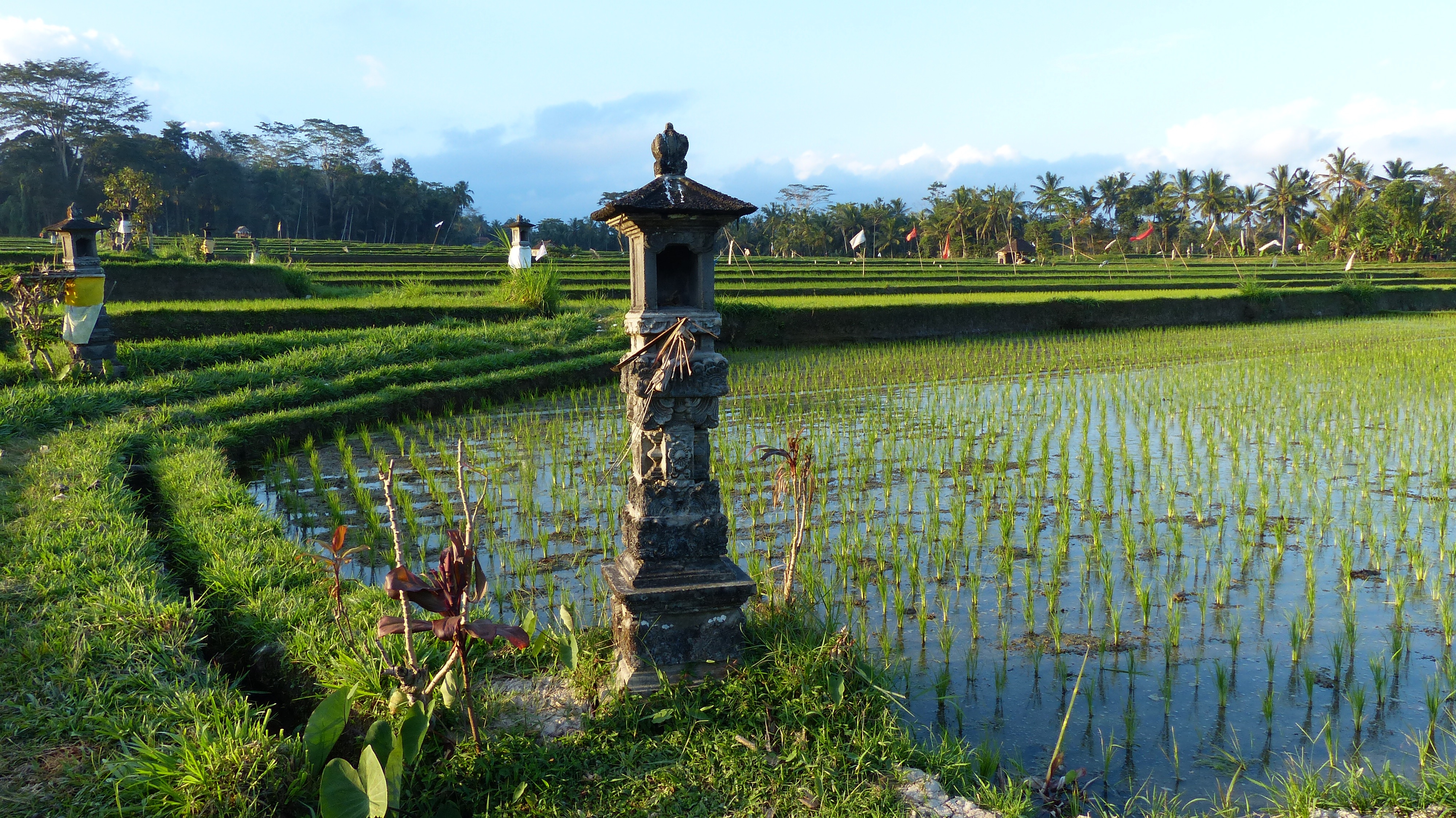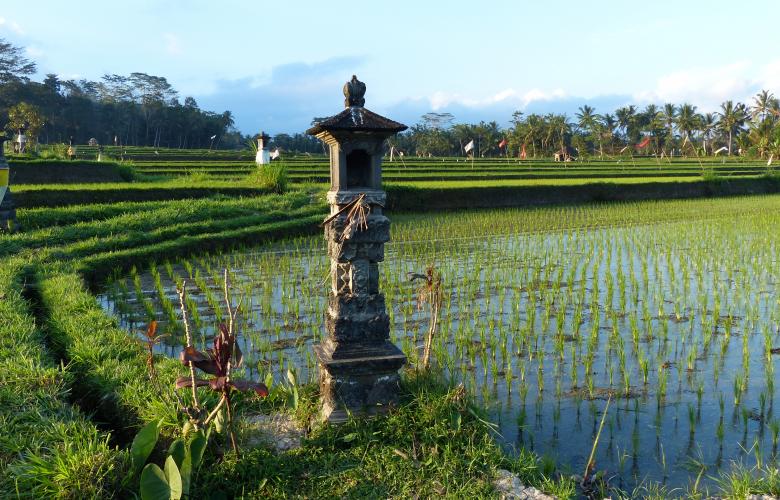Head of the Regional Tourism Promotion Agency (BPPD) of Badung and Deputy Chairman of PHRI Bali (the Bali chapter of the Indonesian Hotel and Restaurant Association), Rai Suryawijaya, is keen to increase the number of Japanese visitors to Bali.
Rai told local news wires recently that the number of Japanese tourists visiting Bali had dropped by around 12-percent Year-on-Year in July. He suggested that more infrastructure improvement, better attractions and extra promotions were needed to tap into Japan's outbound tourism potential.
 Kuta's spectacular sunsets are one of the reasons why Bali is so popular. Image by Jeniffer Wai Ting Tan on Pixabay.
Kuta's spectacular sunsets are one of the reasons why Bali is so popular. Image by Jeniffer Wai Ting Tan on Pixabay.
Domestic tourism development
However, this is easier said than done because Bali faces greater competition and more interesting investment opportunities from other Indonesian destinations keen to develop their own tourism industries and markets.
Despite July's drop, Japan is still in the top-ten when it comes to foreign arrivals to Bali with numbers over the last few years steadily increasing after a significant drop following the devastating Fukushima earthquake in 2011.
 Bali could focus on a growing global trend for sustainable tourism. Image by Fransoo Patrick on Pixabay.
Bali could focus on a growing global trend for sustainable tourism. Image by Fransoo Patrick on Pixabay.
Focusing on the numbers
In February 2018, Tempo reported Japanese arrivals had increased by 7.65-percent and this was on the heels of a 12-percent increase in 2017 according to Antara News.
Gapura Bali reported in January that direct foreign arrivals to Bali had exceeded targets in 2018 as Q1/2019 numbers were up almost 3-percent on last year.
Rai focused on the potential Japan has for Bali's tourism industry going as far as to suggest there needed to be an arrangement with national carrier JAL to boost the numbers, citing the impact direct flights to London and India had made when it came to increasing visitor arrivals from both countries.
Other destinations on the rise
Interestingly however, SekTab (Sekretariat Kabinet Republik Indonesia) released data at the beginning of August claiming tourist arrivals to Indonesia were up by almost 4-percent on last year with more than 7.8 million visitors so far.
 Borobudur near Yogyakarta is benefiting from Jokowi's '10 New Balis' initiative. Image by EHIB from Pixabay.
Borobudur near Yogyakarta is benefiting from Jokowi's '10 New Balis' initiative. Image by EHIB from Pixabay.
Significant increases to hotel room occupancy rates in Yogyakarta and North Sulawesi, both in Jokowi's "10 New Balis" initiative, would appear to indicate the initiative to spread foreign visitors to more destinations other than Bali, was working.
Lombok and Flores are also becoming viable investment alternatives for those looking to develop more sustainable projects than they could do in Bali.
Tourism 2020: Quality vs. Quantity
The latest calls to boost visitor numbers to Bali however, appear to be contrary to the Tourism 2020 initiative, which House of Representatives Commission X Member, I Putu Supadma Rudana spoke to local news wires about at last year's Tourism Attraction Expo and Forum (ITAEF).
Gapura Bali reported that Rudana believed Bali could lead the way and be a prime example of tourism development based on being a Tri Hita Karana destination by focusing on green sustainable tourism. By definition this would mean concentrating on quality rather than quantity.
 Bali has much to offer when it comes to quality experiences. Image by Jamie Fenn on Unsplash.
Bali has much to offer when it comes to quality experiences. Image by Jamie Fenn on Unsplash.
Quality wars
"The key is not to just pursue quantity and reduce prices. We must improve the quality and importantly tourists will spend more," Rudana said, citing a growing global trend for sustainable tourism and Bali's award winning destination status.
Instead of the traditional 'price wars', which aim to increase arrivals through cheaper holiday packages, Rudana suggested a 'quality war' that would provide big benefits not only for tourists but also for local stakeholders.
Who will win Bali's battle of Quality vs. Quantity remains to be seen, but there is no doubt the negative effects of mass tourism on the island have begun to bite and a new approach is worth serious consideration.
Sources: Nusa Bali, Bali This week, World Tourism Organization, Gapura Bali, Sekretariat Kabinet Republik Indonesia, Antara News, Tempo
Similar to this:
Time for Bali to get serious about sustainable tourism
Tourism 2020: Quality over Quantity
Tri Hita Karana Roadmap: Blended Finance for Better Business





 Kuta's spectacular sunsets are one of the reasons why Bali is so popular. Image by Jeniffer Wai Ting Tan on Pixabay.
Kuta's spectacular sunsets are one of the reasons why Bali is so popular. Image by Jeniffer Wai Ting Tan on Pixabay. Bali could focus on a growing global trend for sustainable tourism. Image by Fransoo Patrick on Pixabay.
Bali could focus on a growing global trend for sustainable tourism. Image by Fransoo Patrick on Pixabay. Borobudur near Yogyakarta is benefiting from Jokowi's '10 New Balis' initiative. Image by EHIB from Pixabay.
Borobudur near Yogyakarta is benefiting from Jokowi's '10 New Balis' initiative. Image by EHIB from Pixabay. Bali has much to offer when it comes to quality experiences. Image by Jamie Fenn on Unsplash.
Bali has much to offer when it comes to quality experiences. Image by Jamie Fenn on Unsplash.


